Poultry owners raise their flocks for various reasons. One of which includes getting produce from their chickens. These chickens are raised for their eggs, meat, as pets, or as a hobby. Egg-layers have taken an essential role in the market. Curious, at what time of day do chickens lay eggs?
This article will cover
- When Do Chickens Start Laying Eggs
- Tell-tale Signs That Your Hens are About to Start Egg-laying
- What Time Do Chickens Lay Eggs?
- Egg Count
- Preparing Your Coop for Your Hens
When Do Chickens Start Laying Eggs
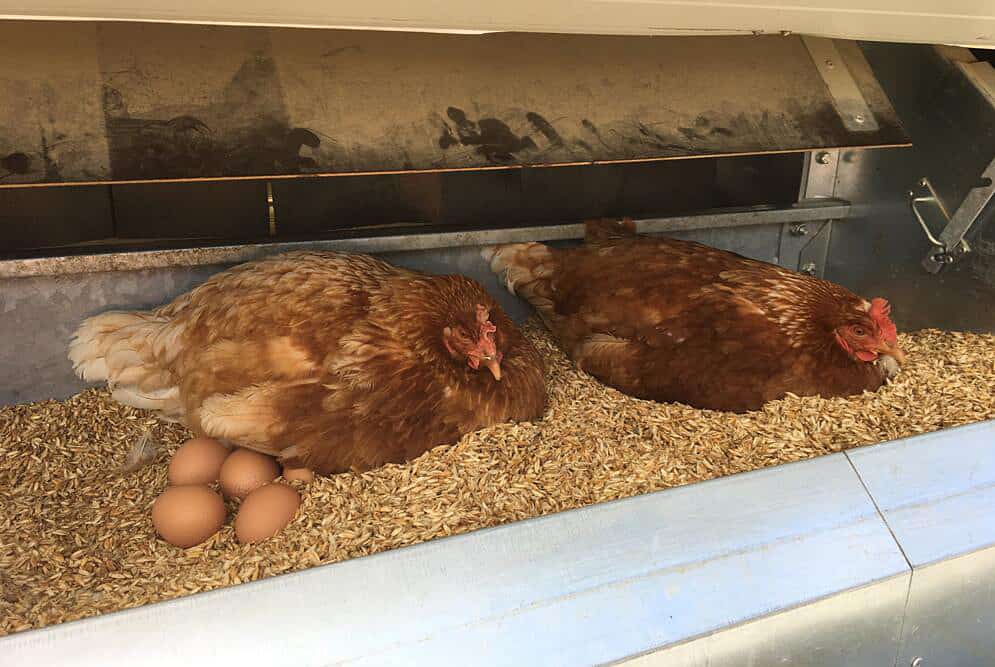
While many hens share the same starting time when laying eggs, their egg-laying can vary individually. Factors like health, breed, and overall condition can play a part. The standard start for hens to lay their eggs is during or around their 16th to 20th week.
Different breeds can have other average times as to when they usually start laying eggs. Breeds including Rhode Island Reds, Red Comets, sex links, Wyandottes, and Leghorns usually begin laying their eggs during these weeks.
Easter Eggers, the famous chicken when it comes to egg color, start laying their eggs at around their 20th to 24th week, taking relatively more extended than the other breeds mentioned.
On the other hand, some breeds lay much later. Breeds such as Jersey Giants, Orpingtons, and Brahmas can start at 24 weeks before laying their first eggs taking much longer than the Easter Egger.
There are also a few breeds that lay their eggs later than their 24th week. Breeds like the beloved Silkie take up to 40 weeks, average twice as long as the majority of the species.
However, this is entirely understandable as breeds like Silkie is kept and raised not because of their eggs. They are not much of egg-layers, but instead, they are grown for their appearance, most of the time for the show, as pets or hobby.
However, these are just the estimates out of all the research and observations. There is no exact magic date on which chickens lay their eggs. Their egg-laying season is not even under their control. On the other hand, various factors are also at play.
Aside from their biological build-up, factors such as environment, feed, nutrition, water intake, etc., also have their roles in the hen’s egg production. Some breeds just take their time and some are built to be ready at an earlier age.
Tell-tale Signs That Your Hens are About to Start Egg-laying
It’s always exciting to find your hen’s first egg somewhere around their space. Sometimes, owners would even be surprised to know that there are already eggs in places they haven’t prepared for yet!
While you can never guess the exact date and time when your hens will lay their eggs. Nevertheless, there are common telltale signs that will help you know when they are about to start laying their eggs. This way, you will be able to adjust and prepare your coop for your hens and their eggs.
Enlarging and reddening of your hen’s combs and wattles
When your hens are about to transition to their egg-laying phase, their wattles and combs, which are typically red, tend to become noticeably even brighter and redder. Aside from the color, its size can expand and become more prominent too.
When you spot these signs, your hen may be ready to find a partner and lay some eggs. However, if these signs happen early on, perhaps under eight weeks, it may just be a sign that your chicken will grow up to be a rooster.
Odd behavior and perhaps, a lot louder
Hens can have repetitive and other behaviors out of the ordinary. One of those that point to egg-laying coming close is clucking more than ever. They get talkative before they lay their eggs and quite a handful after they laid eggs.
Hens approaching their egg-laying era also tend to return to one or more points within their space. You may also find your hens picking up random pieces of bedding materials or straw on their backs as if getting a nest ready. They may also have an increased interest in nesting places.
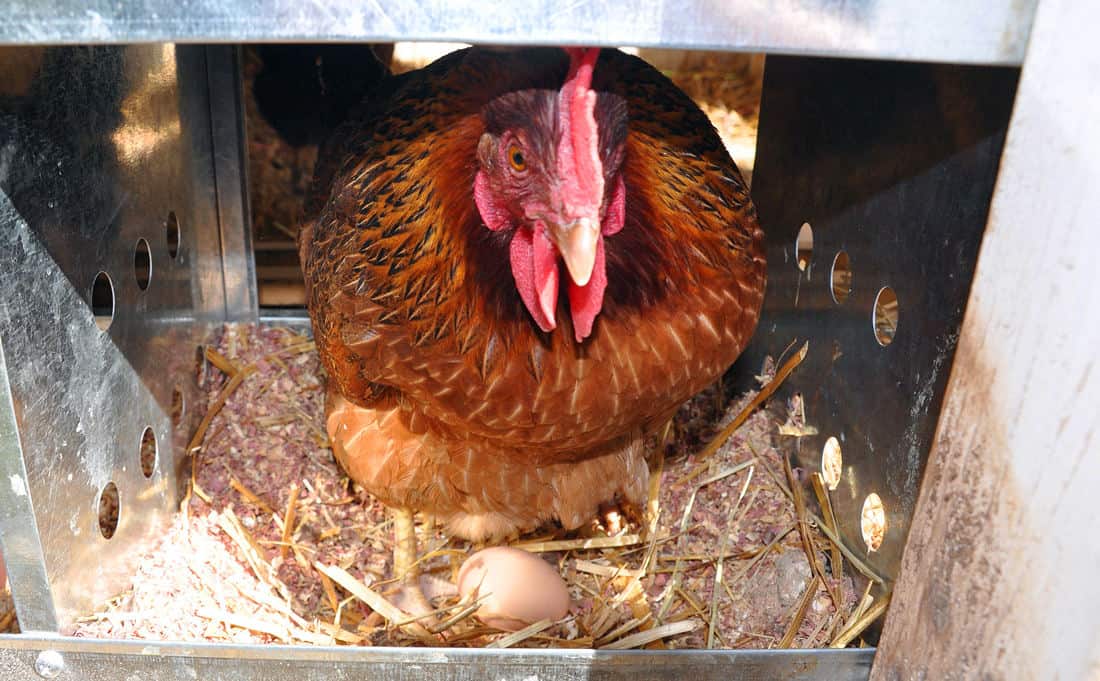
Submissive Squating
When they are ready to lay eggs, paying your hens will result in a specific squat position called a submissive squat. This is their reflex behavior signaling that they are prepared to be mated by a rooster.
Increased intake and appetite
Upon entering their egg-laying phase, your hens tend to eat a lot preparing her body for the process they will go through. This is one of her body’s various changes during this remarkable change in her life and growth.
These are just some of the signs. While others are pretty much very noticeable, there are also subtle changes that you may or may not spot. The most important point is to be prepared for the start of your hens’ egg-laying years.
What Time Do Chickens Lay Eggs?
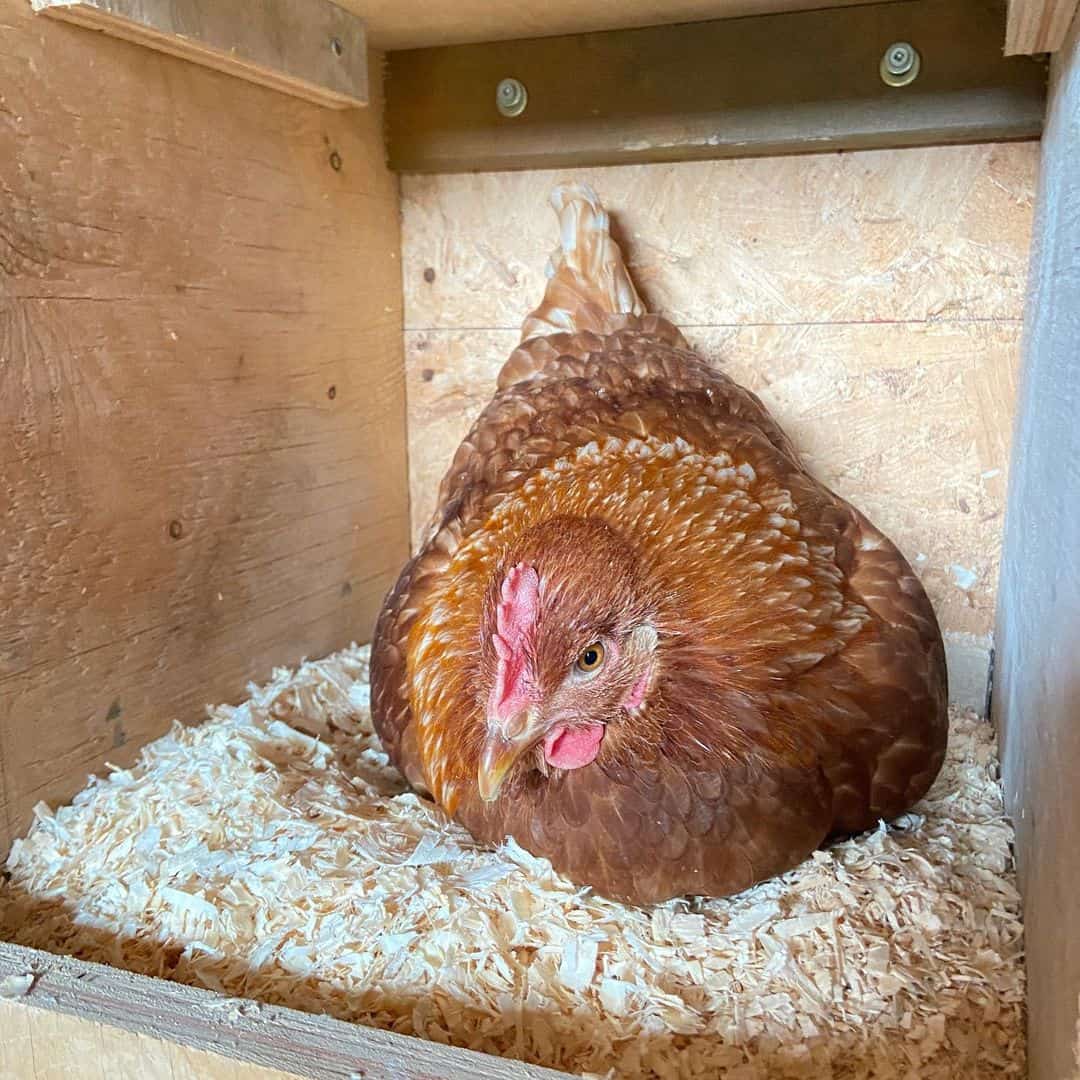
To stick to your set egg collection time, it’s beneficial to monitor and know when to go to the coop and collect. As many would have guessed, yes, egg-laying hens are indeed morning creatures! Hens usually lay their eggs in the morning.
One may ask why during the morning? Chickens’ reproductive cycle has a remarkable connection with light. In short, light exposure has control over their reproductive cycle. This is a biological mechanism inherent in hens making sure that the eggs are laid in the morning.
A hen’s photoperiod or light exposure is the most significant factor in its egg-laying journey. In fact, their bodies require them to have an average light exposure of 14 hours each day.
In cases where they can get up to 16 hours of light exposure, they are able to maximize their production. Now, what about hens that are kept inside? Are they unable to lay eggs? Of course, they can lay eggs with the help of artificial lights.
Hens lay in an interval of 25-26 hours. However, this can vary as perhaps hens can lay their next egg at the 26th hour instead of the 25th. This way, you can schedule your egg collection by counting one day and, at most, another hour before you go to your hen’s nesting place.
This way, you will avoid interrupting their egg-laying process. With the knowledge that they lay an egg every 25-26 hours, for example, if they lay at 7 am on a Sunday, they will drop an egg again at around 9 am on Monday, 11 am on Tuesday, and so forth.
Another factor in sparking differences in chicken’s egg-laying hours is their breed. Breeds who lay brown eggs tend to have their laying session earlier in the morning. Hens who lay white eggs have their laying session later in the day. Broiler hens do their egg-laying activities before dawn.
Hybrids have proven themselves to be the most consistent out of all the breeds. They are the most likely to lay their eggs at the same point every day. In short, it’s like they have a schedule to follow.
Egg Count
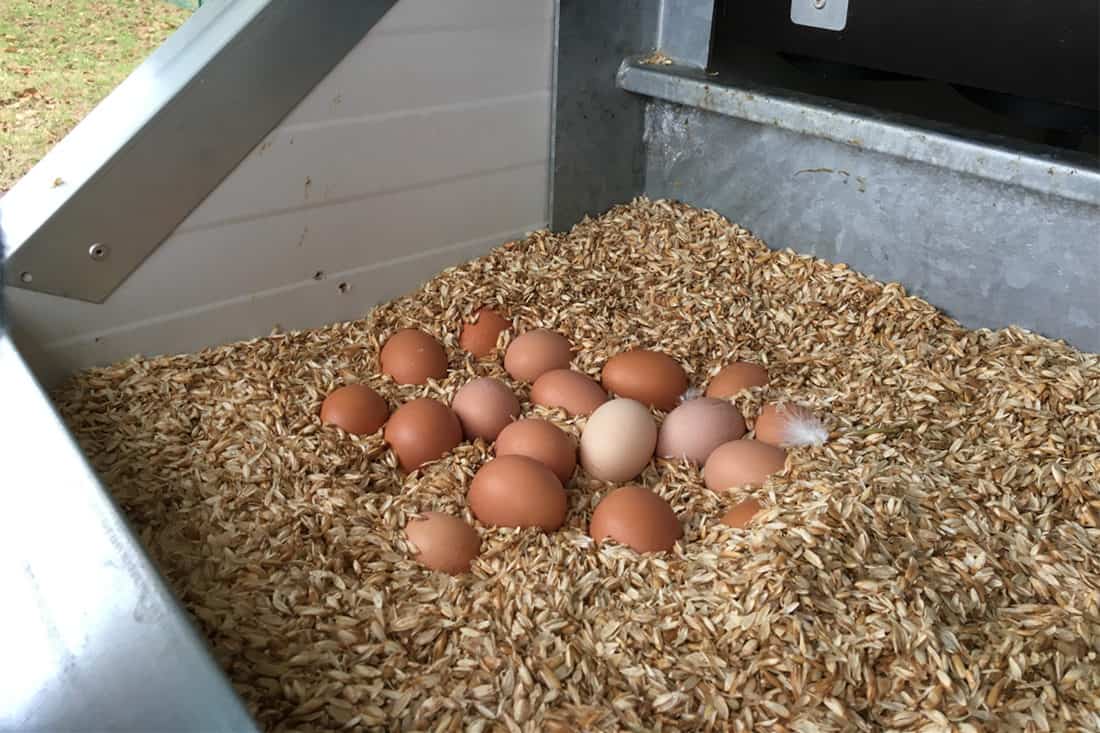
Producing eggs is not a quick process at all. It takes time and energy for your hens. This explains the 24 to 26 hours interval before they lay their next egg. With this pace and rate, chickens can lay up to 250 eggs per year. Chickens who are raised for their eggs usually meet this criterion easily. This group includes:
- White Leghorns
- Rhode Island Reds
- Blue Andalusians
- Plymouth Barred Rocks
- Ameraucanas
- Sussex Orpingtons
- Buff Orpingtons
Of course, hens also need to have their break from egg-laying. And so, this is usually during the winter and fall, whenever the days are shorter than usual. The first year of a hen’s egg-laying season is one of her best egg-laying times. [9 Tips to Keep Chicken Laying Eggs In The Winter]
During their first year of laying eggs, they can achieve up to 90% egg count, being 100% = 1 egg per day. The numbers 80 to 90% are already an incredible number considering the different factors that can affect egg-laying processes.
Despite the popular myth of hens “stopping” their egg-laying process, they actually don’t abruptly stop. It’s just that they undergo an inevitable process of having and producing fewer eggs as years pass by. Hens can lose at most 10% of their egg count per year as years pass by. Nevertheless, they will continue laying eggs occasionally as they grow mature and eventually stop laying eggs.
Preparing Your Coop for Your Hens
As you anticipate the start of the egg-laying process, you should start to prepare the coop for your hens to feel comfortable laying their eggs. Perhaps, it’s time to create comfortable nesting boxes.
Adding some layer of straw, bedding cushion, or anything comfortable to the box will make it more comfortable for your chickens. As they start to lay an egg in their nesting box, they are most likely to come back and lay in the same spot again.
Summary
The start of your hens’ egg-laying journey is one of the most exciting parts of raising a flock. This is why reading and researching things about the process is essential. Knowing the signs before they lay eggs, what time of the day do chickens lay eggs, etc., will help you take better care of your flock.
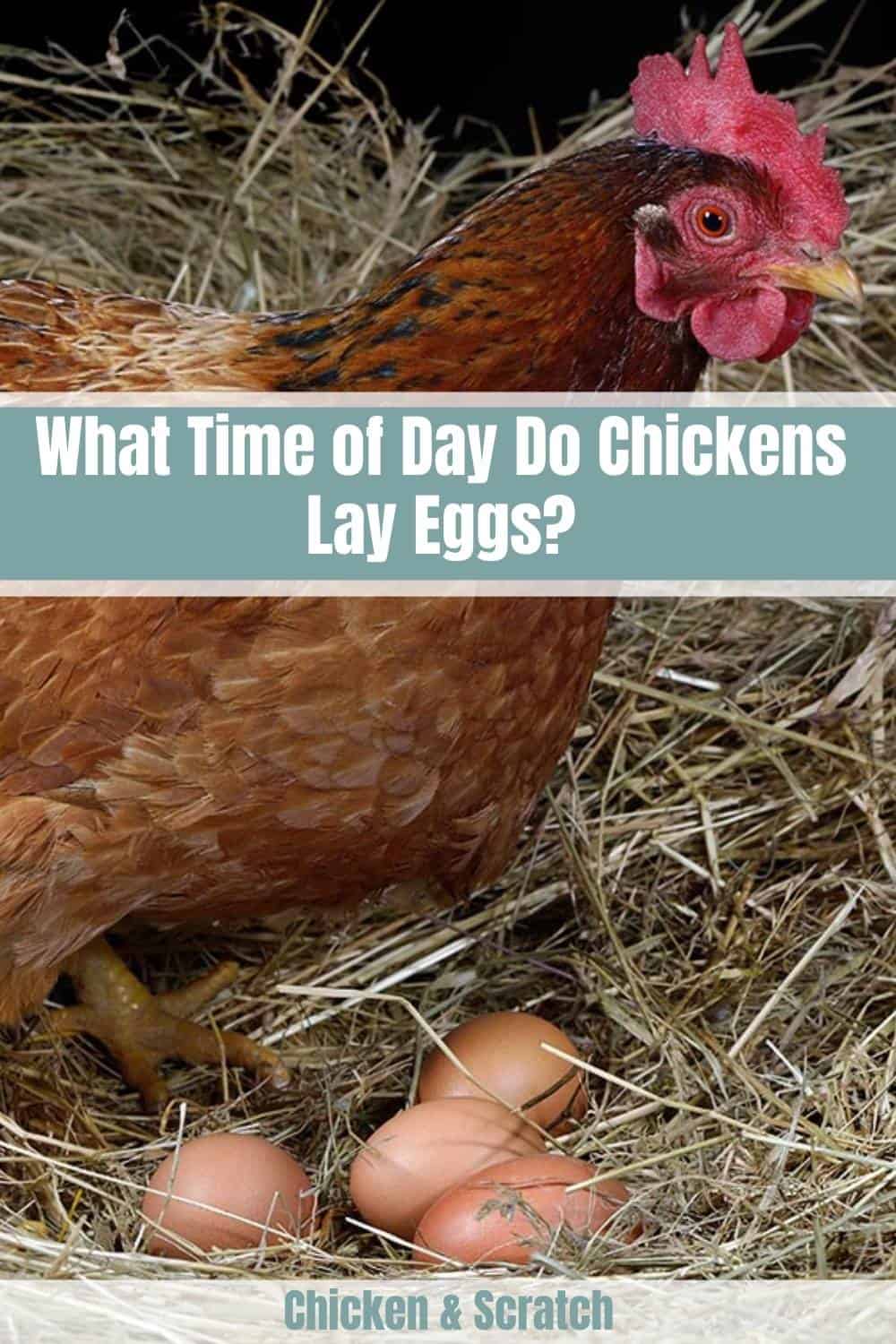

Joseph Hudson has been raising chickens for over 15 years. In 2018, he completed the Agriculture & Natural Resources program at Mt. San Antonio College. He currently raises over 1400 chickens on his 7.5-hectare farm. He keeps sharing his experience on raising healthy and happy chickens on Chicken Scratch The Foundry.
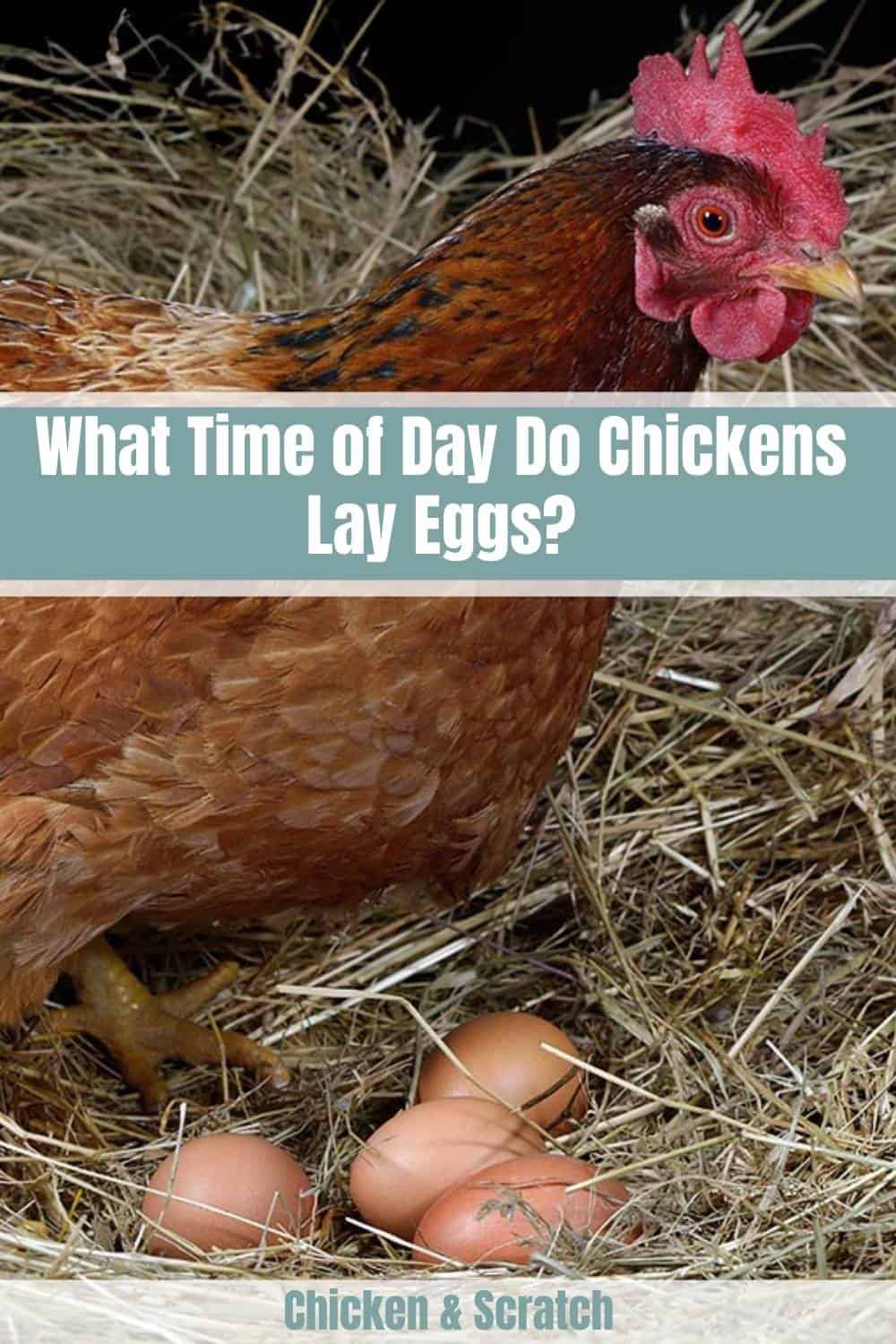







I have 5 laying hens and I only get 2-3 eggs a day! Why are they laying green and blue looking eggs? And how do I know which ones are laying?
Hi Cheryl,
The green and blue-colored eggs are quite special and are often laid by breeds like Araucanas, Ameraucanas, or Cream Legbars. As for identifying which hens are laying, you can watch for signs like regular visits to the nesting boxes, changes in their vocalizations, and a more prominent, red comb. These are all indicators that a hen is actively laying eggs.